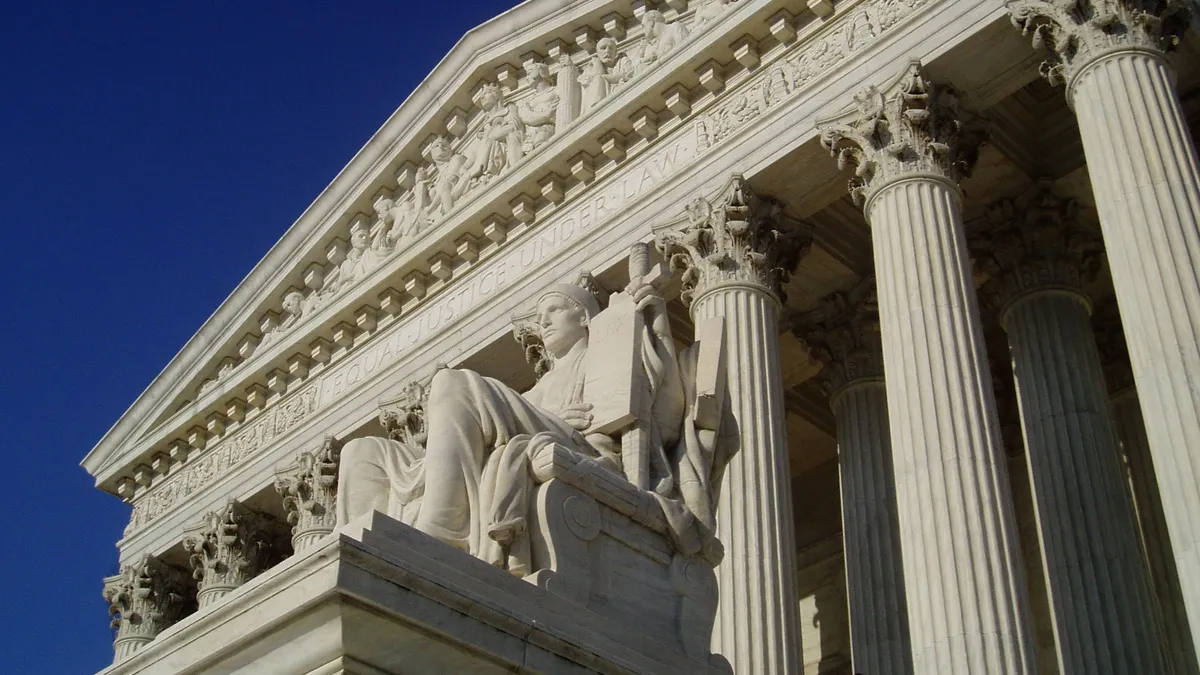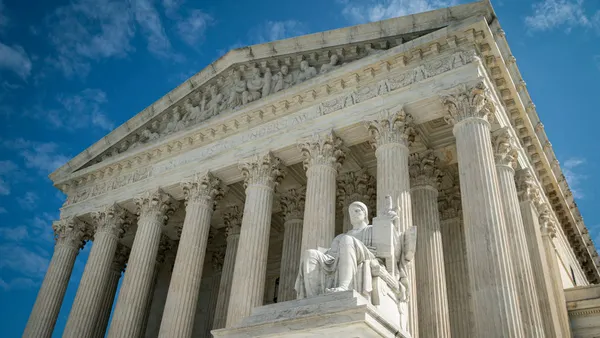Dive Brief:
- The U.S. Supreme Court will not decide whether employers can use salary history to justify paying men and women differently for similar work under the Equal Pay Act (EPA) (Yovino v. Rizo, No. 19-1176 (U.S. July 2, 2020)).
- In rejecting the petition, the High Court left intact a 9th U.S. Circuit Court of Appeals decision that an employee's prior rate of pay is not a "factor other than sex" that allowed an employer to pay one of its female employees less than male employees who performed the same work.
- In February 2019, the High Court vacated and remanded a related 9th Circuit decision without weighing in directly on the merits of the case; it ruled that the appeals court erred when it counted the vote of a judge who died days before the court's decision was filed.
Dive Insight:
Rizo has been the subject of a lengthy journey leading up to this dead end. The plaintiff, Aileen Rizo, filed suit March 24, 2014, alleging California's Fresno County paid male teachers more for doing the same work she did.
A federal district court refused to grant summary judgment for the employer but in 2017, a 9th Circuit three-judge panel vacated and remanded that order, ruling that salary history alone could be used to set pay. But when it reheard the case about a year later en banc, or with the full court, it found that "prior salary alone or in combination with other factors cannot justify a wage differential." The Supreme Court then vacated that ruling, finding that the 9th Circuit was wrong to count the vote of Judge Stephen Reinhardt, who died 11 days before the court filed its ruling.
Late February of this year, the 9th Circuit affirmed its earlier en banc ruling, holding that an employee's prior rate of pay is not a "factor other than sex" that could allow an employer to pay a woman less than a man if they performed the same work. Additionally, the court concluded that only job-related factors may serve as affirmative defenses to claims under the EPA. In its July 2 orders, the High Court allowed that ruling to stand.
It's worth noting that a handful of states and localities throughout the U.S. have banned employers from asking applicants about salary history. Supporters of such legislation argue that employers can continue and exacerbate pay disparities by basing job seekers' pay rates on how they were previously compensated.
Researchers at the Boston University School of Law recently discovered that, following salary history bans, employers posted wages more often and increased pay for job changers by about 5% more than comparable job changers. The analysis found pay increases were even larger for job-changing women and African Americans at 8% and 13%, respectively, the researchers said. But a study from the University of Chicago, the London School of Economics and Burning Glass Technologies found that, while online job posting increased and was more likely to include salary information, new hire pay declined.











